- Home
- Dirk Patton
36: A Novel Page 20
36: A Novel Read online
Page 20
“My, Mr. Whitman. You continue to surprise me,” she smiled as if I was a student that had shown he wasn’t as dull as the professor had thought. “The proper name is superconducting supercollider. If you like, I can loan you a book that will tell you all about it. There’s one buried in the sea floor beneath us. The largest ever constructed, and built just for the Athena Project.
“It is more powerful than the one in Texas. Much more, but I haven’t been allowed to turn it up above the levels achieved when we first discovered that we could move through time. My team and I are working furiously on calculations to prove it will be safe.”
I had kept shoveling food into my mouth while she spoke. My heart leapt when I heard what she had to say. Possibly go back years? Years was what I needed to correct the errors in my life. Travel back and correct some of the mistakes I’d made. There still wasn’t a day that went by that I didn’t think about Monica and what could have been. If I had a chance to fix things and have a life with her instead of ten wasted years in prison…
“You can’t breathe a word of this to anyone,” Dr. Anholts cautioned. “I shouldn’t be saying anything, but if I can’t tell an asset, who can I tell?”
She leaned back and smiled at me. I returned the smile after wiping my mouth with a paper napkin.
“Thanks for the time, Doc,” I said. “I’d better be on my way before Agent Johnson comes looking for me. Anytime you want someone to talk to about the project, I’d love to listen.”
She smiled and wished me good luck with my meeting. I smiled back as I stood, picked up my tray and carried it away. Glancing at a clock, I saw I had seven minutes left. Good. I’d arrive a few minutes early and not give either of them an excuse to chew on me for being tardy. Damn, but sometimes this was worse than being in the Army.
30
Even though I was early, Patterson and Agent Johnson were already in the room waiting for me. The projector was on and when I walked in Agent Johnson reached out and paused the video they were watching. I looked at the screen, seeing a frozen image of Julie sitting on the edge of the bed in the motel room when she was telling me about her husband’s death.
“What the hell?” I asked. “You guys had a camera hidden on me?”
“Several,” Johnson nodded, gesturing for me to take a seat in one of the empty chairs. “They continually stream to your data chip, recording everything you do.”
I was pissed, but held my tongue and sat down. They hadn’t told me about the cameras. Probably wanted to see what I did and how I handled myself when I thought I was alone.
“We’ve reviewed the video several times,” Patterson said. “We aren’t here for you to tell us what happened. We already know that. What we want to know is why you made the decisions you made. Let’s begin with your choice to assault the target at the end of the event point rather than earlier.”
I was quiet for a moment, struggling internally to calm myself and not exacerbate my situation. They weren’t happy that Julie had become involved, and I decided I’d rather not fight a battle over that decision at the moment. Pick your fights carefully and maybe you’ll live to fight another day.
“I felt that, tactically, it was a better idea to attack as they were preparing to leave,” I said, forcing the words to come out in a calm and reasonable tone.
For several minutes I spoke, describing my thought processes leading up to the decision. I told them about my observation of the leader arriving at the parking lot with all of the weapons, and what I believed that meant. And how it appeared to have been a correct assumption.
When I finished, Johnson pressed some keys on his laptop and the frozen video image disappeared. It was replaced with a still photo of three hard sided crates sitting in the middle of a carpeted floor. The lids had been removed. Clearly visible in each were four AK-74s, resting in foam cutouts. Twelve rifles. Two crates went with the leader and the third would be the spare weapons I’d been told were found in the apartment.
“This is a crime scene photo from the apartment,” Johnson explained. “These were found in one of the bedrooms you didn’t enter. Gun cleaning supplies were found, and traces of solvent and oil were on all but two of the perpetrators’ hands. Your assumption appears to have been correct.”
I nodded, unsure if this was praise. And not really caring if it was or not. I’d done my job. To me, that was all that mattered. Maybe it was a little messy, but right now, somewhere in California, a bunch of children, teachers and cops were alive because of what I’d done. I had to acknowledge to myself; that felt pretty damn good.
We went through the rest of the time I’d spent in the past. Reviewed every little turn of events. Every detail was discussed. Johnson asked questions, but Patterson remained silent. Listening to my answers. Observing me like I was some sort of curiosity. I was more than surprised when the topic shifted to my lack of disorientation and I hadn’t been read the riot act about involving Julie.
“Hold on,” I said, raising my hand like a traffic cop. “You still haven’t explained what Julie was doing in that apartment. It was supposed to be empty.”
“The advance team made an error,” Johnson sighed. “The apartment building is managed by an older couple. They only spoke with the wife, who was unaware that the husband had rented the unit the previous morning. It was a mistake that shouldn’t have happened, and will not happen again.”
I nodded, resisting the impulse to bitch about the situation. But then maybe they weren’t making a big deal out of this because it was their mistake in sending me to that particular apartment. I decided to let the topic drop.
“What’s happening with Julie? What’s being done to her?” I asked, not sure I trusted Johnson had given me a straight answer.
“Done to her, Mr. Whitman?” Patterson finally spoke up, sounding slightly indignant. “What do you think we are? She’s an American citizen. Nothing is being done to her. She has been returned to her home. The agent in charge of her detail was satisfied after speaking with her that she will not reveal any of her little experience with you.
“Another agent has deleted both of your images from the local Police Department’s data servers. In addition, her employer has received a visit from the FBI, explaining that Ms. Broussard’s absence was due to an emergency situation in which her assistance was required by the US Government. It was made clear to them that any reprisals against her due to her absence would be unwise. Good enough?”
I was surprised at the response. Thoughts of Julie being secreted away to a black site prison because she knew too much had been running through my head. If Patterson was telling the truth, she was being well cared for.
“I want to talk to her. Hear from her that she’s OK,” I said.
Patterson and Agent Johnson exchanged looks. I couldn’t tell if they were worried about me uncovering a truth, or were not expecting this response. They were both quiet for a short moment before Patterson looked at me.
“Fine. Agent Johnson will arrange that once we’re finished here.”
I nodded, looking up when the door to the room suddenly burst open. A young woman, who I’d noted was usually at Patterson’s side, stood in the entrance, breathing like she’d just run a sprint.
“Director,” she said in a haunted voice. “The President has just been assassinated.”
“I am declaring an event,” Patterson said immediately, leaping to his feet and heading out the door.
Agent Johnson and I stood, following. Patterson’s assistant tapped on her iPad and a moment later the klaxon began blaring. There was an almost instant response, people dropping whatever they were doing and dashing to their assigned work stations. The organized chaos flowed around us as we hurried to the operations center. The woman raced ahead, opening the door with her keycard so Patterson could pass through without breaking stride.
“What do we have?” He barked as he walked into the room.
Johnson and I pulled to a stop and stepped to the side so we weren’t in the way
. Looking up I saw the large TV tuned to CNN. An image of a smoldering building was on the screen, a banner across the bottom scrolling a repeating message: Washington DC attacked – President Scarsdale believed dead.
“Nothing confirmed yet, Director. A large explosion at a restaurant where the President was dining with the Speaker of the House. We’re only a few minutes in and that’s all we know at this time.”
I glanced at a large screen displaying a countdown clock. It read -35:51:18. The bomb, if it was a bomb, had detonated eight minutes and forty-two seconds ago. Johnson tapped my arm and I followed him to a small table with a pair of chairs in the back corner of the room.
“We wait here and watch,” he said in a low voice when we sat down.
My seat had a clear view of the TV and I watched as fresh images began being shown. A wide angle shot of the whole block from a news helicopter gave a better perspective. A four lane street ran through the area.
Along each side were single story businesses, the road lined off so there was on-street parking in front of each. The structure at the center of the shot was mostly demolished, nothing more than smoking debris remaining. The buildings to either side had sustained heavy damage and one of them was on fire.
The shattered remains of four Suburban SUVs, the Secret Service’s favorite transport vehicle for POTUS, were resting on their sides in the middle of the street. Spotting something, I stood and stepped closer to the screen, but the image changed back to ground level.
“Did you see that?” I turned to Johnson, but he shook his head.
“What?” He asked.
“Not sure,” I said. “Anyway to get that feed on your laptop so we can see it again?”
He nodded and opened his computer’s lid. I sat down and scooted my chair close, watching as he worked.
“Aerial shot. Right?”
“Yes,” I said.
Patterson had taken note of our conversation and moved to stand behind our chairs, peering over our heads at the laptop screen.
“Here,” Johnson said.
The same aerial image began playing and when I told him, he froze it. I leaned close to the screen for a better look.
“Can you zoom?”
He clicked a couple of keys and the image jumped, enlarging the devastated building.
“There!”
I pointed at a crater blasted out of the foundation. It was almost perfectly circular and penetrated all the way through the concrete, exposing the dirt beneath.
“Bomb,” Patterson said.
I looked over my shoulder at him and shook my head.
“That’s not a bomb,” I said. “I saw plenty of these in Iraq. That’s a missile strike. Bombs will shatter concrete, but not make a perfect crater like that. A missile, coming in fast, will penetrate before the warhead detonates. That initial penetration weakens the foundation and lets the blast wave inside the cement.”
“You sure?” Johnson asked, not sounding convinced. “Won’t a bomb do the same thing?”
“Sorry. When I say bomb, I’m thinking of the kind of bombs we faced. Suicide vest. Backpack bomb. Improvised Explosive Devices. IEDs. An air delivered bomb will do this, too. What I’m saying is this was something launched or dropped from an aircraft. It was going fast when it struck the concrete.”
Patterson stepped away and began barking orders. He wanted the radar logs from the FAA and nearby Anderson Air Force Base reviewed immediately.
“You sure about this?” Johnson asked me quietly.
“Yep,” I said. “My platoon got sent in more than a few times to clean up after drone strikes. Seen this lots of times. And seen too many places where some fucker just set off a bomb he built in his basement. I’m sure.”
We turned our attention back to the CNN broadcast as the people around us worked feverishly. Perhaps I should have been as shaken by this event as I had been by the slaughter of the school children, but I wasn’t. Not even close.
Sure, it’s a horrible thing when a President is assassinated. But, in my mind at least, it’s a risk every person who has ever held the office willingly took. Then the import of what I’d noticed hit me. An aerial strike. A bomb dropped or missile fired. This wasn’t uneducated jihadists. And it wasn’t a foreign nation. Not operating an aircraft over Washington DC. I was willing to bet that didn’t happen after 9/11.
When I thought about who could be flying an armed drone or aircraft around restricted airspace, there was only one answer. The US military.
We sat and watched the broadcast. Soon the scene was flooded with men and women wearing FBI, ATF and Secret Service windbreakers. There was no audio to go along with the images, but I didn’t really want any. It would be nothing more than reporters repeating the same two or three facts. Then they would interview someone who was a retired something or other, and that would just be speculation. I knew I’d get the most factual briefing available as soon as we knew something.
Forty minutes later, Patterson walked over and looked down at me.
“You were right,” he said. “Preliminary analysis at the scene has found residue consistent with the primary explosive in a Hellfire missile warhead.”
I nodded, not happy that I was right. It would be bad if a terrorist had been able to get close enough to the President to take him out with a backpack or vest mounted IED. It was about a hundred times worse to think our military had decided it was time for a regime change.
“That means our military. Right?” I asked, hoping there was another explanation.
“Possibly,” he said, grimacing. “The CIA has some drones that are armed, but I think the Air Force are the ones that actually operate them. Regardless, there aren’t supposed to be any in operation over US soil. That’s being checked. Hellfire missiles have also been sold to several of our allies, so it is possible one fell into the hands of a terror cell.”
“Along with an aircraft to deliver it?” I asked.
He stared back at me for a moment before shaking his head.
“This is going to take a while,” Johnson interjected. “You need some more rest so you’re ready to go when we have an event point.”
Patterson nodded his agreement. But I didn’t want to go. I wanted to see every bit of information the moment it came in.
“I’m good,” I said.
“That wasn’t a suggestion,” Johnson said, his voice firm. “It will take hours, maybe even a day, before we have an idea of when to send you. You have to be fresh and ready, and you’ve not even been back in real time for twelve hours. Get some rest and I’ll come get you when we know something.”
I sat there staring at him for a long pause. I didn’t want to be cut off, but I knew he was right. With an irritated sigh, I stood up and nodded. Taking a last look at the screen, I walked out of operations and headed for my quarters.
31
It was four hours later when Agent Johnson came and found me. I hadn’t even tried to sleep. I was too keyed up. Needing to burn off some energy, I had headed for the kill house. The former Delta Operator, known only as Ray, had been more than happy to review my performance with me. We’d gotten the segment that began with me waiting outside the door to 2C and ended after I’d put the final two rounds into the terrorist leader.
He’d run it all the way through without pause or commentary, then restarted the video. It ran for all of two seconds before he stopped it. I was standing a few feet from the target door, waiting for the first tango to open it on his way out.
“You need to be to the side,” he said, leaning forward and tapping a spot on the screen with a thick index finger.
I looked where he indicated and almost blushed in embarrassment. Directly in the upper middle of the door was a peephole. It was only blind luck that they hadn’t checked first and seen me standing there with a rifle at the ready.
“You should have been against the wall, on the knob side. They can’t see you through the peephole, and if they just crack the door open to peek out, you won’t be visible
because of the angle. As soon as the door starts to open, you roll around the jam and push in, leading with your weapon. Understand?”
I nodded, burning the lesson into my memory. Ray set the video in motion again, pausing after the first terrorist fell out of the way and I fired the first shot at the one behind him.
“Why did you hesitate between these two?”
“Waiting for the first guy’s body to be out of my way so I had a clear shot,” I answered, not seeing what could be wrong with this.
“Mistake,” he grumbled. “Fortunately for you, these guys don’t seem to be that well trained. If I had been that second man, in the time you were waiting for the first one to drop, I’d have moved around behind the door, out of your sight, and put a whole ass-load of rounds through it.”
“So what should I have done?”
“Let’s back it up,” he said, rewinding the video a few seconds. “Now, the door begins to open. You have a target and you stand perfectly still and fire two rounds. He drops, then you push forward and slam the door fully open to enter the apartment.”
As he talked, he started and stopped the video so it was in sync with his narration.
“You should have charged the instant that door began moving. Come forward, put the muzzle right against the first guy’s chest and use the rifle to shove him back as you’re pulling the trigger. Push the body aside and bring your weapon onto the guy behind him, firing as you’re moving.
“From the moment that door began to move until you put the second guy down, nearly four seconds passed. That’s an eternity in this world. You can’t hold back once you’ve committed. Movement is critical. Stay static, and someone’s going to blow a hole in you. Got it?”
I nodded, realizing I’d been very lucky. We went through the rest of the clip in the same manner. Where I’d done something wrong, or could have done it better, Ray paused the playback and explained what he would have done. Once we had gone all the way through, he rewound it to the beginning and had me take control and explain errors to him just like he’d done. Highlighting my own mistakes really drove the lesson home, and I was glad I’d sought him out.

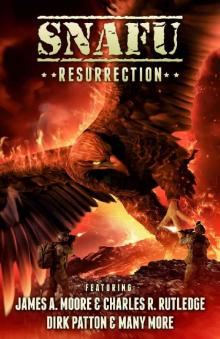 SNAFU: Resurrection
SNAFU: Resurrection The Awakening
The Awakening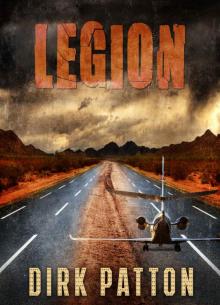 Legion: V Plague Book 19
Legion: V Plague Book 19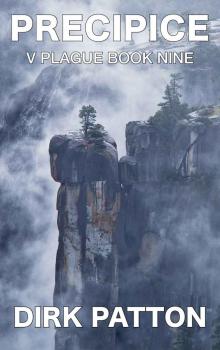 Precipice: V Plague Book 9
Precipice: V Plague Book 9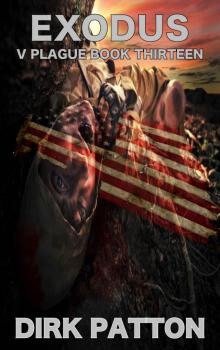 V Plague (Book 13): Exodus
V Plague (Book 13): Exodus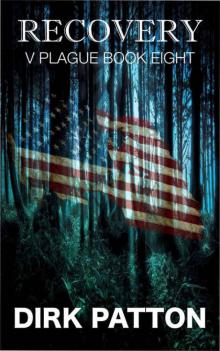 Recovery: V Plague Book 8
Recovery: V Plague Book 8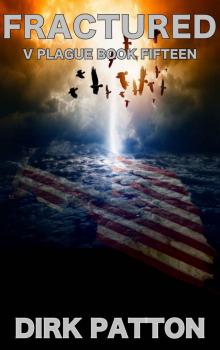 Fractured: V Plague Book 15
Fractured: V Plague Book 15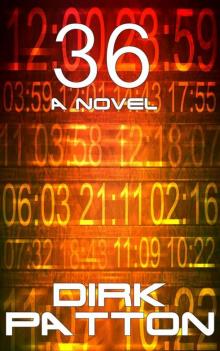 36: A Novel
36: A Novel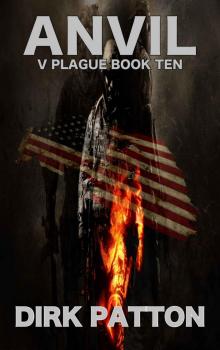 Anvil
Anvil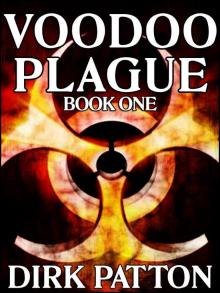 Voodoo Plague - 01
Voodoo Plague - 01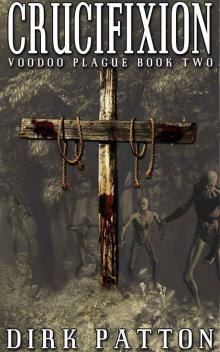 Crucifixion - 02
Crucifixion - 02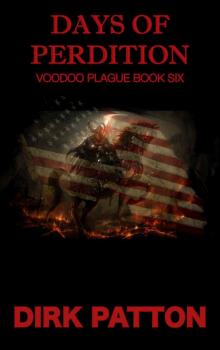 Days Of Perdition: Voodoo Plague Book 6
Days Of Perdition: Voodoo Plague Book 6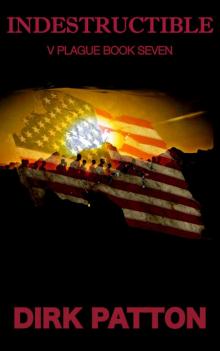 Indestructible: V Plague Book 7
Indestructible: V Plague Book 7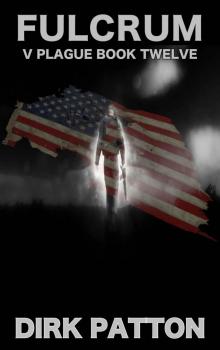 Fulcrum: V Plague Book 12
Fulcrum: V Plague Book 12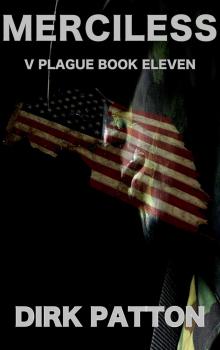 V Plague (Book 11): Merciless
V Plague (Book 11): Merciless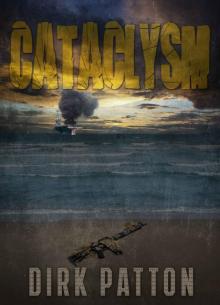 Cataclysm: V Plague Book 18
Cataclysm: V Plague Book 18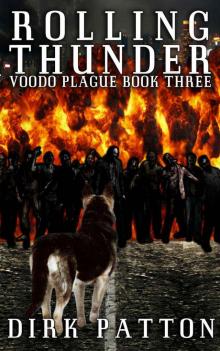 Rolling Thunder - 03
Rolling Thunder - 03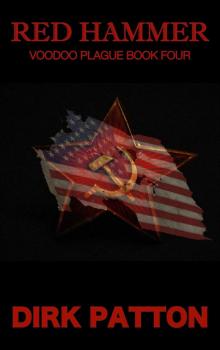 Red Hammer: Voodoo Plague Book 4
Red Hammer: Voodoo Plague Book 4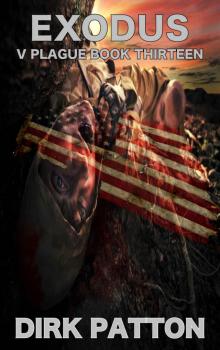 Exodus: V Plague Book 13
Exodus: V Plague Book 13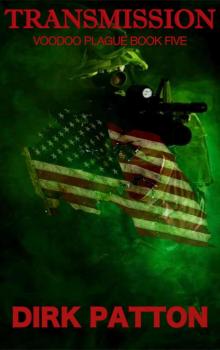 Transmission: Voodoo Plague Book 5
Transmission: Voodoo Plague Book 5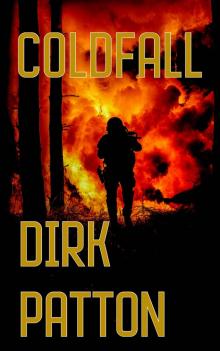 Coldfall
Coldfall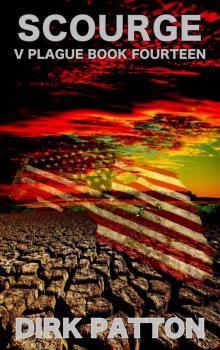 Scourge: V Plague Book 14
Scourge: V Plague Book 14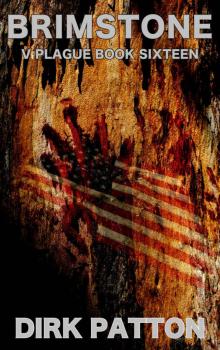 V Plague (Book 16): Brimstone
V Plague (Book 16): Brimstone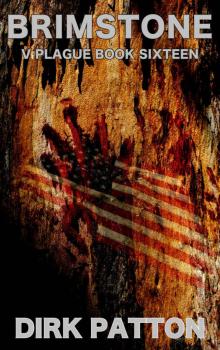 Brimstone: V Plague Book 16
Brimstone: V Plague Book 16